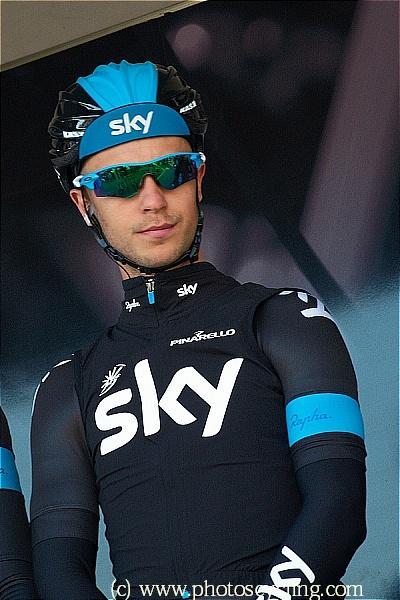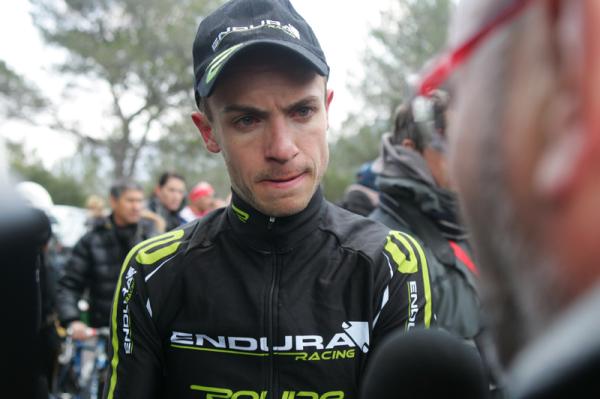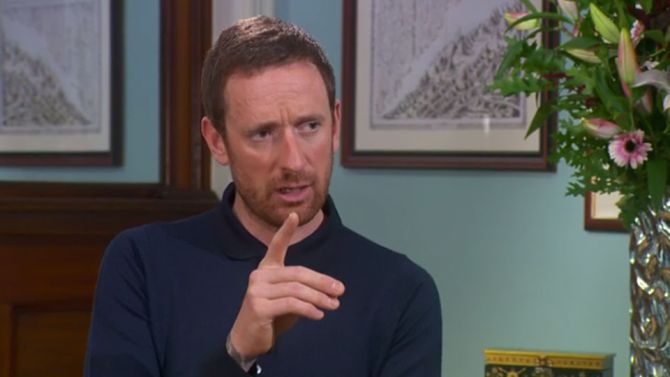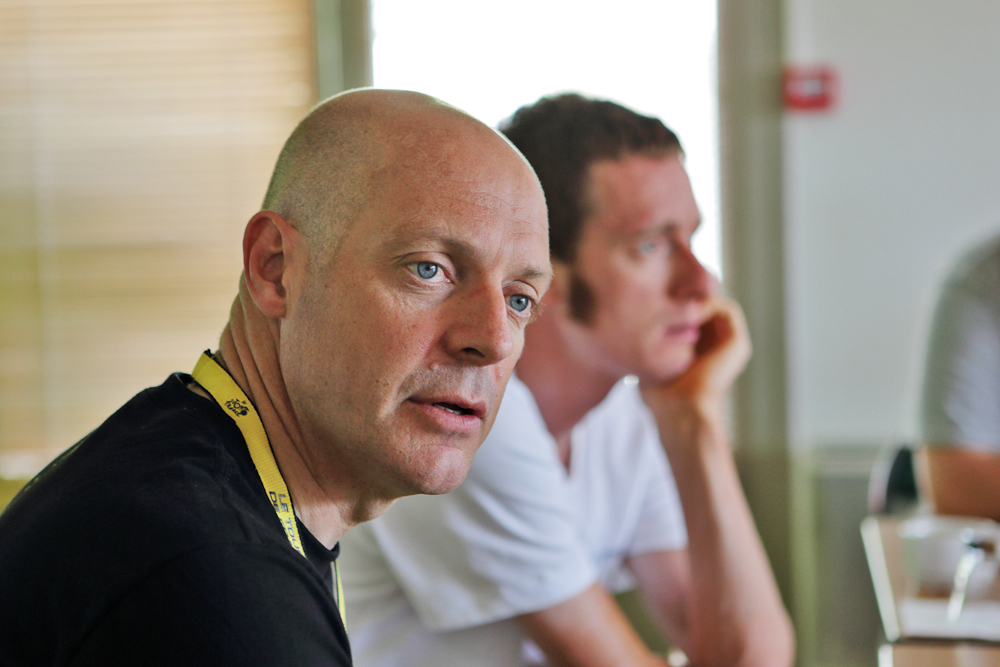Former Sky rider Tiernan-Locke says Great Britain offered Tramadol 'freely'
Allegation denied as rider calls Wiggins' use of corticosteroids 'odd'




Former Team Sky rider Jonathan Tiernan-Locke, in a BBC report today, questioned Bradley Wiggins' use of a powerful corticosteroid drug to treat his allergies.
Tour de France winners Froome and Wiggins named in confirmed 'Fancy Bear' WADA hack
UCI defends TUE use after Russians hack Wiggins, Froome medical records
Millar says Wiggins' TUE drugs should be banned
Wiggins says he didn't take triamcinolone to gain an unfair advantage
Tom Dumoulin says Wiggins' TUE case stinks
Tiernan-Locke points finger at former Team Sky doctor over Tramadol claims
Tiernan-Locke also revealed that the Great Britain team, at the 2012 World Championships, offered riders Tramadol "freely around," but he did not take it. "I wasn't in any pain so I didn't need to take it, and that was offered freely around. It just didn't sit well with me at the time. I thought, 'I'm not in any pain', why would I want a painkiller?'"
Cyclingnews understand that British Cycling have put the allegation of Tradamdol use, or any other strong pain killer, to the doctor in question, and that he has denied it.
Former Team Sky rider Michael Barry described being prescribed Tramadol to use in competition while racing for Team Sky. The team said it used the drug "minimally" and supported a ban on its use in competition.
The news of Wiggins' Therapeutic Use Exemption (TUE) to take injections of the drug triamcinolone acetonide (Kenalog) before the 2011 and 2012 Tours de France and the 2013 Giro d'Italia emerged after hackers gained entry into the World Anti-Doping Agency's athlete management system for the Olympic Games in Rio.
WADA and the UCI have defended the TUE application process, stating that athletes like Wiggins followed the rules that allow for them to use normally banned substances when they have a medical need. Wiggins stated that he did not take the drug to gain an advantage. "This wasn't about trying to find a way to gain an unfair advantage. This was about putting myself back on a level playing-field in order to compete at the highest level," he said.
Tiernan-Locke, who became the first British rider to be banned for biological passport irregularities from his time before joining Team Sky, said that the case has people questioning Team Sky.
Get The Leadout Newsletter
The latest race content, interviews, features, reviews and expert buying guides, direct to your inbox!
"From the outside it definitely looks odd that you would apply for a TUE before the major Grand Tours you have a GC ambition in, but at the same time [Wiggins] is just following a process. You don't know what his medical team has suggested, if he has allergies, maybe they suggest that's the best way around it," Tiernan-Locke said.
"It's just a shame that we've heard from other riders who have previously abused these drugs and saying how powerful they are and the performance enhancing benefits. So it's difficult to compute why that would be the go-to solution for something as ordinary as asthma.
"I don't want to insinuate anything, but the timing doesn't look great. There are other races throughout the year, and you assume if you had a need for such a thing it would be consistent throughout his career, that you'd use it year in year out, so from that point of view it looks suspicious."
"But from the other perspective, we've got a guy who's favourite for the general classification in these big races, so for a team like Sky who are so thorough, they don't want to leave anything to chance so, why risk these allergies derailing their best-laid plans, it's somewhat less than transparent. I can understand why the wouldn't want to shout about individual athletes or individual cases, and I can respect their right to privacy in that regard."
When asked if he felt the team were tainted by the case, Tiernan-Locke said they were not tainted in his mind. "I personally believe it's a case of preventing anything that might have... derailed their plans, but I do think they have become tainted [in the public eye]. People I have spoken to, out of training, it has kind of tainted their image somewhat. I think their modus operandi before was to put things out in the public domain and look transparent and not have anything to hide. So with these revelations coming out, it's obviously got people asking questions."